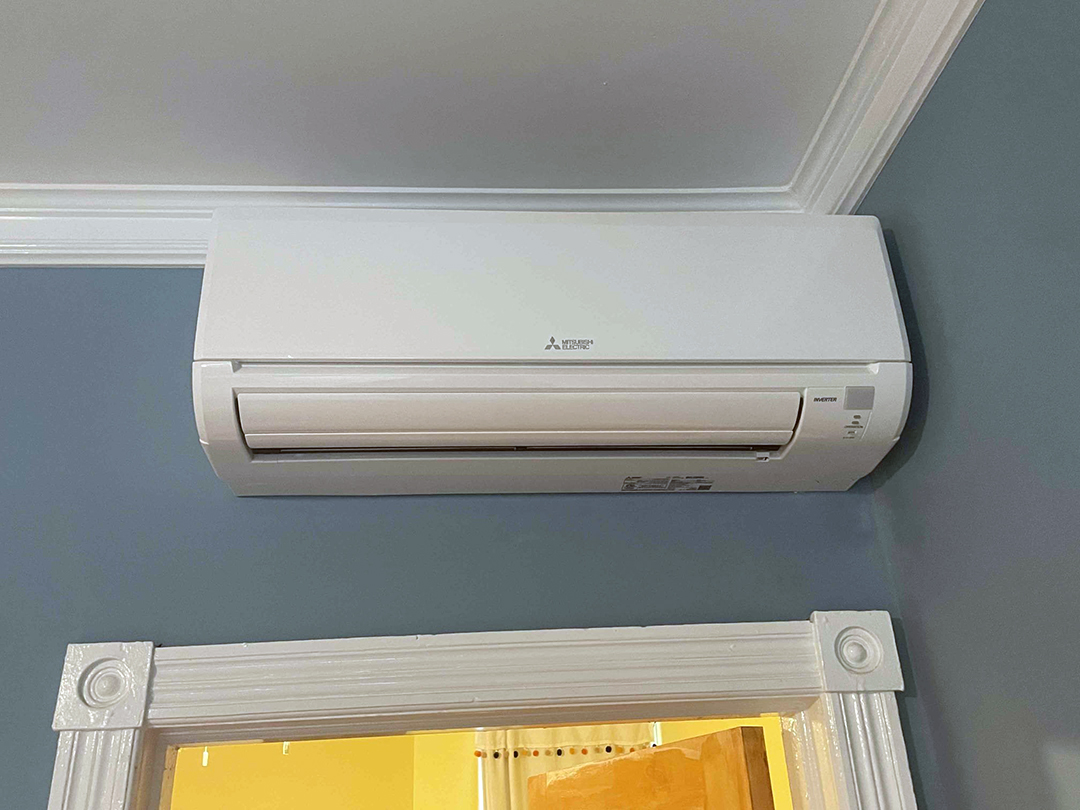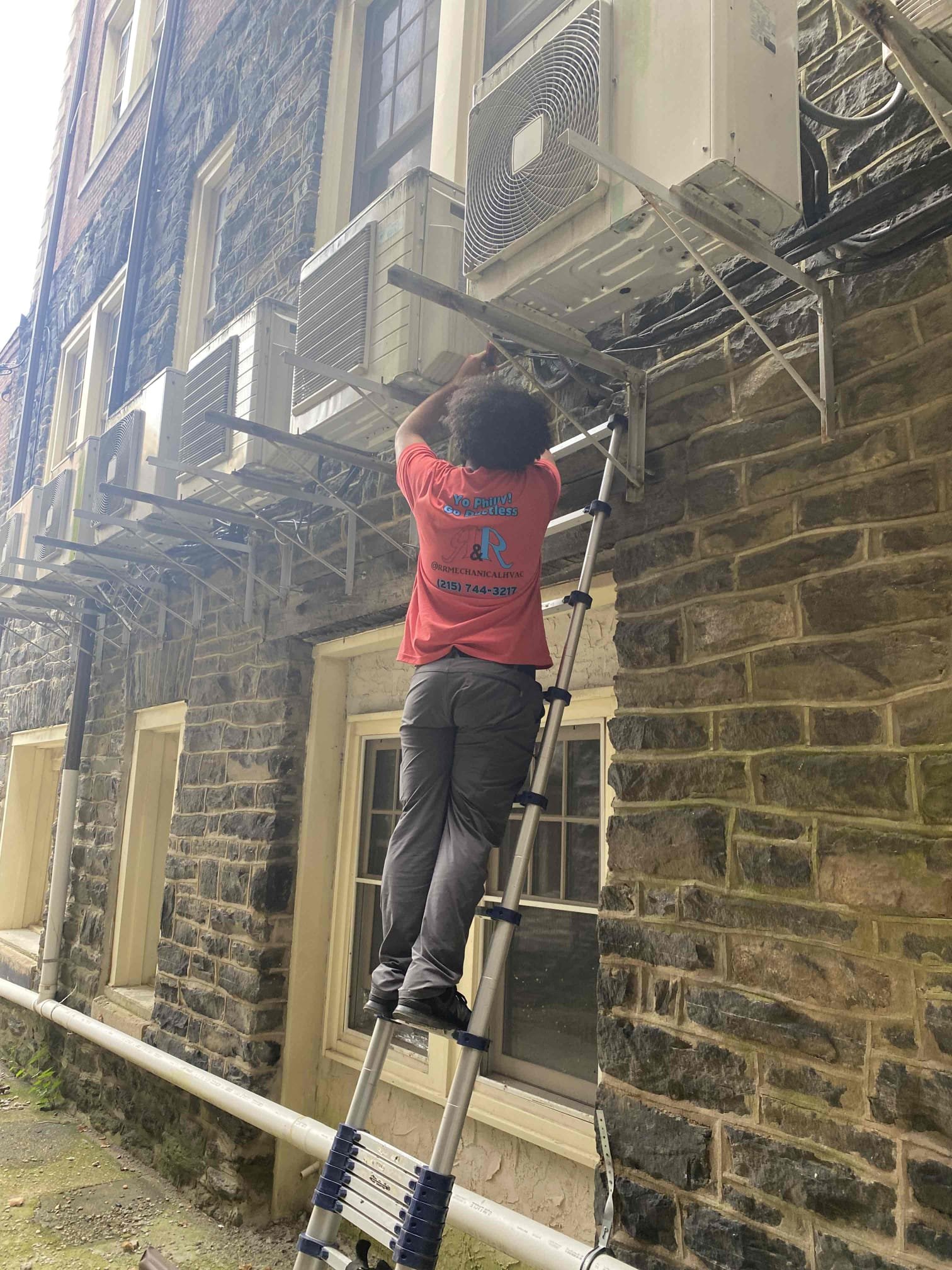Creating the Perfect Study Environment: How Your HVAC System Impacts
Back-to-School Success in Philadelphia
What Makes an Ideal Study Environment for Students?
The perfect study environment combines optimal temperature, superior air quality, and minimal noise distractions. For Philadelphia families preparing for the September 3rd school year, your home’s HVAC system plays a crucial role in creating spaces where students can focus, learn, and succeed. Research consistently shows that environmental factors like temperature and air quality directly impact cognitive performance, making your heating and cooling system an essential part of your child’s educational toolkit.
Students perform best when their physical environment supports concentration rather than creating distractions. This means maintaining consistent temperatures, ensuring clean air circulation, and minimizing background noise from HVAC equipment. For families in historic Philadelphia homes, where traditional ductwork may be noisy or inefficient, modern ductless mini split systems offer an ideal solution for creating dedicated study zones.
The Science Behind Temperature and Learning Performance
Cognitive research reveals that students perform optimally when room temperatures stay between 68 and 72 degrees Fahrenheit. When temperatures climb above 75 degrees, concentration levels drop significantly as the body diverts energy toward cooling itself. Conversely, rooms below 65 degrees cause students to focus more on staying warm than on their studies.
Philadelphia’s fluctuating late summer and early fall weather creates particular challenges for maintaining consistent indoor temperatures. Traditional HVAC systems often struggle with the temperature variations common in older homes throughout neighborhoods like Society Hill, Northern Liberties, and South Philadelphia

Ductless mini split systems excel in these situations because they provide precise temperature control for individual rooms, allowing families to create perfect study environments regardless of what’s happening in the rest of the house.
The ability to maintain steady temperatures becomes especially important during homework time and test preparation periods. Students studying for several hours need consistent environmental conditions to maintain peak mental performance. HVAC maintenance before the school year ensures your system can reliably deliver the stable temperatures essential for academic success.

How Ductless Mini Splits Create Superior Study Spaces
Ductless mini split systems offer unique advantages for families creating dedicated study areas in their Philadelphia homes. These systems provide whisper-quiet operation, typically producing sound levels below 19 decibels, which is quieter than a library. This silent operation eliminates the distracting background noise common with traditional forced-air systems, creating an environment where students can concentrate without interruption.
The zoned heating and cooling capabilities of ductless systems allow parents to customize temperatures for different family members and activities. While one child studies in a cooler environment that promotes alertness, another family member can maintain different comfort levels in adjacent rooms. This flexibility proves invaluable in multi-story Philadelphia rowhouses where traditional systems struggle to maintain consistent temperatures throughout the building.
Installation of ductless mini splits requires minimal disruption to your home’s structure, making them perfect for historic Philadelphia properties where preserving architectural integrity matters. Unlike traditional ductwork installation that might require major renovations, ductless systems can be installed quickly and efficiently, often completing the project before the school year begins.
Air Quality’s Impact on Student Health and Focus
Indoor air quality significantly affects students’ ability to concentrate, retain information, and maintain good health throughout the school year. Poor air quality can trigger allergies, asthma, and other respiratory issues that interfere with learning. Philadelphia’s urban environment means outdoor air pollution can easily enter homes through windows and inadequate filtration systems.

Ductless mini split systems feature advanced multi-stage filtration that removes allergens, dust, and pollutants from indoor air. These systems capture particles as small as 0.3 microns, including pollen, pet dander, and dust mites that commonly trigger allergic reactions in children. Clean air supports better sleep quality, which directly correlates with improved academic performance and classroom behavior.
Regular HVAC maintenance ensures filtration systems continue operating at peak efficiency throughout the school year. Dirty filters reduce air quality and force systems to work harder, potentially leading to breakdowns during critical study periods. Professional maintenance services include filter replacement, system cleaning, and performance optimization to maintain healthy indoor environments.

Creating Quiet Study Zones in Philadelphia Homes
Noise pollution significantly impacts students’ ability to focus and process information effectively. Traditional HVAC systems often create disruptive sounds through ductwork rattling, motor noise, and sudden temperature adjustments. These disruptions break concentration and make it difficult for students to maintain focus during homework sessions or online learning.
Modern ductless systems operate virtually silently, using inverter technology that adjusts compressor speed gradually rather than cycling on and off abruptly. This smooth operation eliminates the sudden noise bursts that interrupt study sessions. The indoor units mount high on walls, directing airflow away from study areas while maintaining consistent temperatures without creating drafts or noise.
For families in older Philadelphia neighborhoods where street noise and neighbor activity can be distracting, maintaining closed windows while still ensuring comfortable temperatures becomes essential. Ductless systems allow students to study in climate-controlled comfort without opening windows that let in external noise and air pollution.
Smart Temperature Control for Busy School Schedules
School schedules require flexible HVAC solutions that adapt to changing daily routines. Students need cool, alert-inducing temperatures during afternoon homework sessions but might prefer warmer, more comfortable settings during evening family time. Smart thermostat integration with ductless systems allows families to program temperature schedules that support optimal learning conditions.

Remote control capabilities let parents adjust study room temperatures before children arrive home from school, ensuring comfortable environments are ready when homework time begins. This proactive approach eliminates the waiting period while rooms reach ideal temperatures, maximizing productive study time.
Energy efficiency becomes particularly important for families managing increased utility costs during the school year when homes see more daytime use. Ductless mini split systems typically reduce energy consumption by up to 30 percent compared to traditional HVAC systems, helping Philadelphia families manage back-to-school expenses while maintaining comfortable learning environments.

Preparing Your HVAC System for Peak School Year Performance
Pre-school year HVAC maintenance ensures your system operates reliably when students need consistent study environments most. Professional maintenance includes cleaning indoor and outdoor units, checking refrigerant levels, inspecting electrical connections, and testing system performance under various load conditions.
Late August represents the ideal time for HVAC system preparation because technicians have greater availability before the September rush when emergency calls increase. Scheduling maintenance now prevents potential breakdowns during critical study periods like midterms and final exams when students need uninterrupted access to comfortable study spaces.
For Philadelphia families considering ductless mini split installation, late summer provides optimal timing for completion before school begins.
Professional installation typically takes one to two days, allowing families to test and adjust settings before students establish their study routines.
The investment in proper HVAC maintenance and potential system upgrades pays dividends throughout the school year in the form of improved academic performance, better student health, and reduced energy costs. Creating the perfect study environment starts with ensuring your heating and cooling system can reliably deliver the comfort conditions that support learning success.
Contact R&R Mechanical HVAC today to schedule your pre-school year system evaluation and discover how ductless mini split technology can transform your Philadelphia home into the perfect learning environment for back-to-school success.












